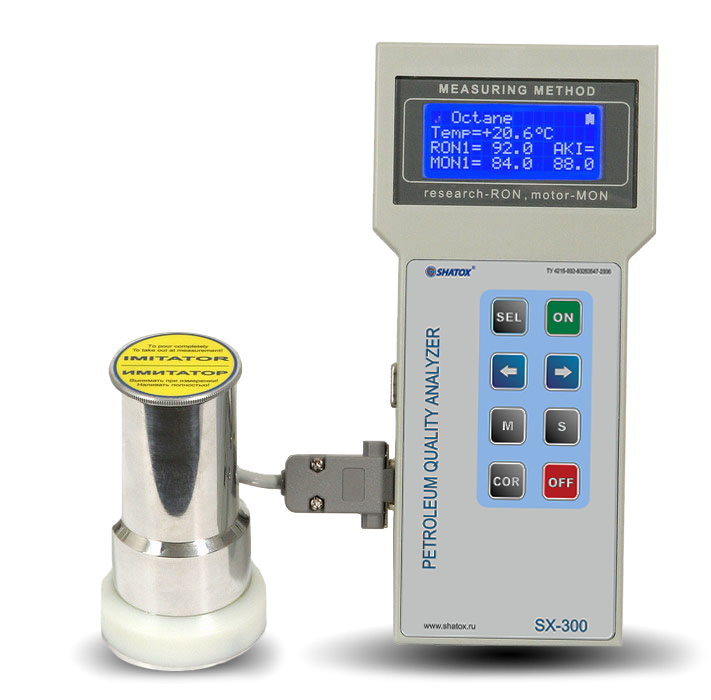Compliance Standards:
ASTM D 2699-86, ASTM D 2700-86, ASTM D 4737-03, ASTM D 613, EN ISO 5165, GOST 14203-69, ASTM D525
Details of the instrument:
- Advanced high precision microprocessor based design
- Comprises of 8-Keys antiglare keyboard for ease of operation
- Instrument is Sturdy, Wear-Proof and offers excellent resistance to aggressive environment
- Supports automatic computer based calibration facility
- Store the data in instrument memory, including time and date
- Can be interfaced to PC Software through USB Interface facility
- Data can be transferred to PC Software in Microsoft excel format or Text Format
Portable Analyzer SX-300 has a distinctive characteristic, an additional sensor, which measures oil products volume resistivity with high precision. Therefore, fuel analysis may be based on two values, which allows measuring octane number of petrols with ferriferous (ferrocene), nickel and manganese additives, and to determine other substances content.
By using this measurement principles, the instrument allows to determine:
(1) Contamination content in oil products;
(2) Pour-point depressants content in diesel fuel
(3) Engine oil base number;
(4) Oil products volume resistivity.
Instrument Capabilities:
- Determining octane numbers for motor petrols. Complies with ASTM D2699-86, ASTM D2700-86.
- Determining cetane numbers for diesel. Complies with ASTM D4737-03, ASTM D613, EN ISO 5165.
- Determining water-in-oil percentage of oil and oil products. Complies with GOST 14203-69 Oil and oil products. Dielectric humidity measuring method. This allows using the instrument as a dielectric moisture indicator for oil products.
- Determining solidification temperature and diesel fuel type.
- Content of antiknock compounds boosting the octane number of petrols.
- Content of pour-point depressants for diesel fuels.
- Content of kerosene in diesel fuel.
- Petrol breakdown time (oxidative stability). Complies with ASTM D525. When determining petrol breakdown time, the petrol brand is selected in the instrument. The instrument switches to corresponding operating mode.
- Loss angle tangent of circuit-breaker, machine and engine oil.
- Level of engine, machine and circuit-breaker oil clarity.
- Manufacturer, engine oil brand. Motor oil brand identification is based on the permittivity determination principle. Genuine motor oils have certain value for this characteristic. Leading manufacturers’ oil brands are included into the instrument database (the database can be renewed or changed).
- Engine oil base number.
- Dielectric permeability of oil products.
- Oil products volume resistivity.
- Determining the mechanical impurities content in oil products.
Delivery Package
- Electronic computing module
- Detector #1
- Detector #2
- Sample imitator for detector #1
- Software disk
- mini-USB cable
- Operations manual
- Certification
- Warranty certificate
- Tool canvas bag
|
Petrol Octane Number |
|
|
Measured petrols octane numbers range |
40–125 ON |
|
Acceptable limit of octane number measurement basic error, max |
± 0.5 ON |
|
Limit of acceptable difference between parallel octane number measurements, max |
± 0.2 ON |
|
Antiknock Additives Content in Petrol |
|
|
The determination range of antiknock additives content in petrols |
0.5-15 % |
|
Acceptable basic error limit of antiknock additives content determination in petrols |
0.1 % |
|
Petrol Oxidation Breakdown Time |
|
|
Petrol oxidation breakdown time measurement range |
50-2400 minutes |
|
Acceptable basic error limit of petrol oxidation breakdown time |
5 % |
|
Resistivity Measurement |
|
|
Petrol quality determination mode basing on volume resistivity |
10 raise to 6 - 10 raise to 14 om |
|
Acceptable basic error limit of volume resistivity measurements |
3 % |
|
Cetane Number |
|
|
Cetane numbers measurement range |
20–100 CN |
|
Acceptable basic error limit of cetane numbers, max |
±1.0 CN |
|
Acceptable difference limit between cetane numbers parallel measurements, max |
± 0.5 CN |
|
Diesel Fuel Pour Point |
|
|
Acceptable error limit when determining diesel-fuel pour points |
± 2 °C |
|
Kerosine content determination range in diesel fuels |
0-95 % |
|
Mode for pour point depressants content determination for diesel fuel |
3 % |
|
Acceptable basic error limit when determining kerosene content in diesel fuels |
0.2-1 % |
|
Acceptable basic error limit when determining of pour point depressants content |
0.01 % |
|
Motor Oil Clarity Level Measurement |
|
|
Motor oils clarity level measurement range |
95-100 % |
|
Acceptable error limit of motor oils clarity level measurement |
0.1 % |
|
Acceptable difference limit between motor oils clarity parallel measurements |
0.01 % |
|
Di-Electric Permeability Measurement |
|
|
POL dielectric permeability measurement range |
1–5 Unit |
|
Acceptable error limit of dielectric permeability measurement, max |
0.001 Unit |
|
Acceptable difference limit between POL dielectric permeability parallel measurements, max |
0.001 Unit |
|
Oil Base Number Determination |
|
|
Oils base number determination range |
0-24 Unit |
|
Acceptable basic error limit when determining oils basic number |
1 BN unit |
|
Circuit Breaker Oil Breakdown Time |
|
|
Circuit-breaker oils (dielectrics) breakdown voltage measurement range |
5–100 kV |
|
Acceptable error limit of circuit-breaker oils breakdown voltage measurement, max |
1 kV |
|
Acceptable difference limit between circuit-breaker oils breakdown time parallel measurements, max |
0.2 kV |
|
Circuit Breaker Oil Loss Angle Tangent |
|
|
Measurement range of circuit-breaker oils loss angle tangen |
0.01–40 % |
|
Acceptable error limit of circuit-breaker oils loss angle tangent, max |
0.01 % |
|
Acceptable difference limit between circuit-breaker oils loss angle tangent parallel measurements, max |
0.001 Unit |
|
Mechanical Impurities Content |
|
|
Determination range for mechanical impurities content in oil products |
97-100 % |
|
Acceptable basic error limit when determining mechanical impurities content in oil products |
0.01 % |
|
Water in Oil Content |
|
|
Water-in-oil content determination range for oil products |
0-30 % |
|
Acceptable basic error limit when determining water-in-oil content of oil products |
1 % |
|
Measurement Time |
1–5 s |
|
Insufficient power supply indication operation threshold |
5.4 V |
|
Instrument useful life |
6 |
|
Overall Dimensions |
|
|
Electronic module |
211 x 100 x 45 mm |
|
Sensor #1 and #2 |
60 х 100 mm |
|
Weight |
850 Grams |








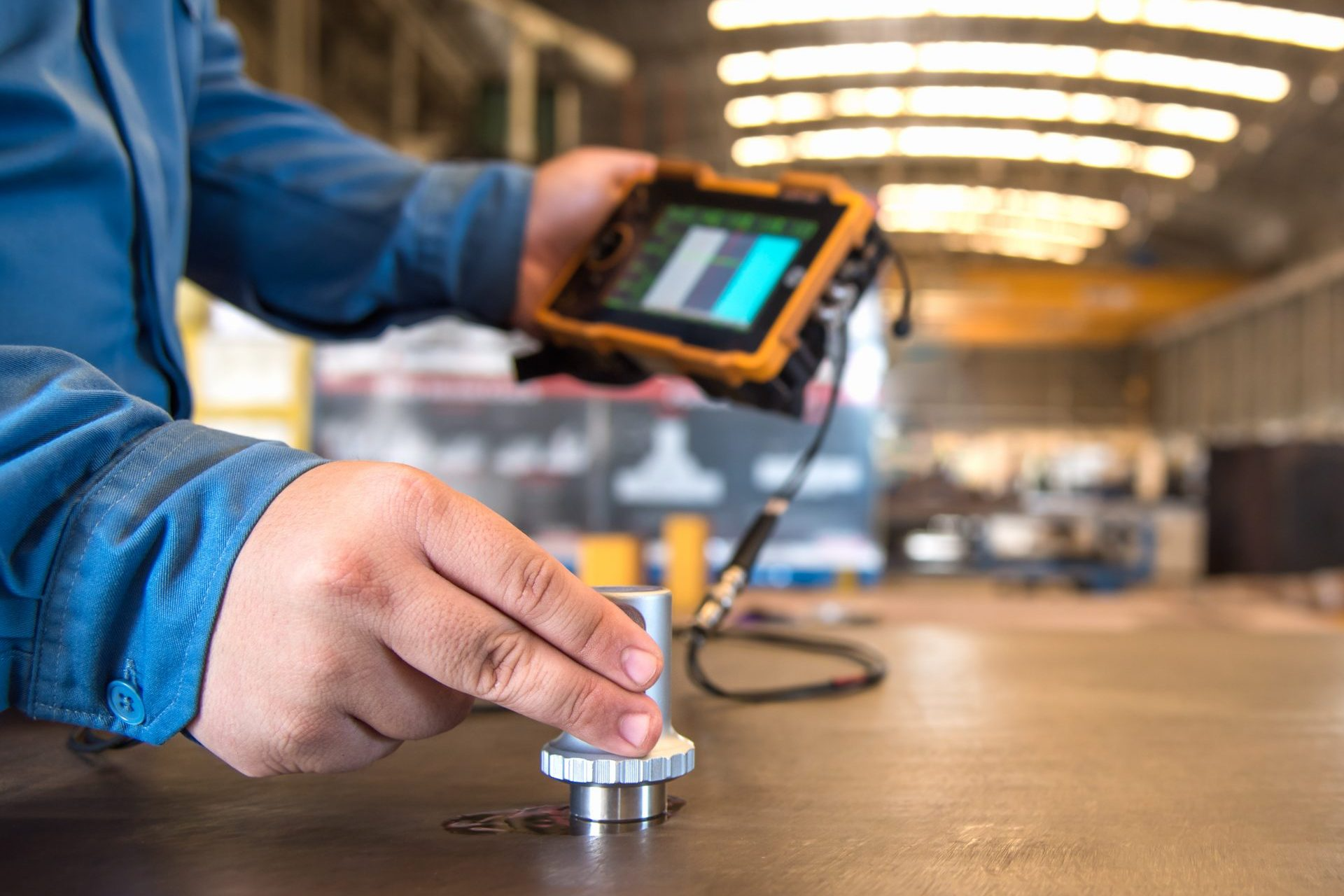
.png)
.jpg)
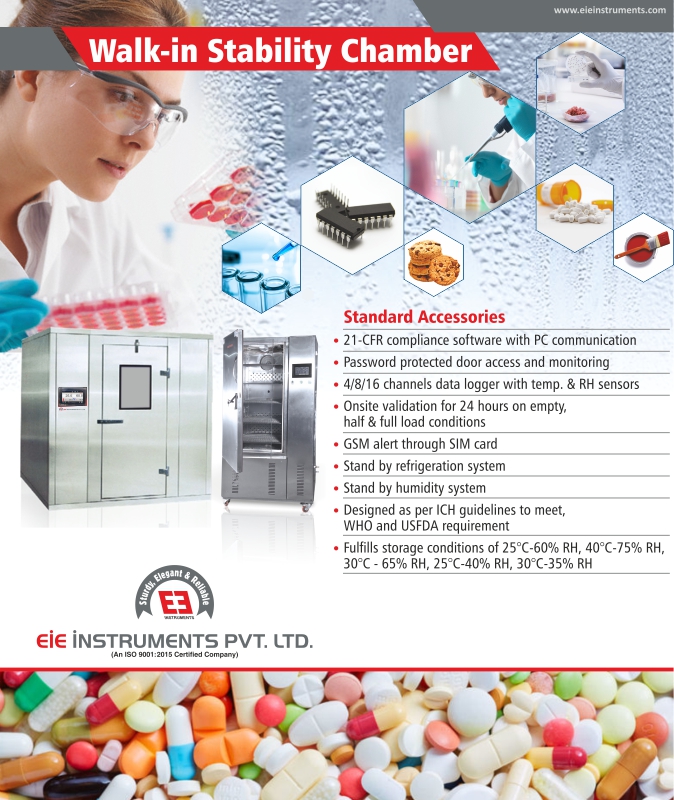


.png)


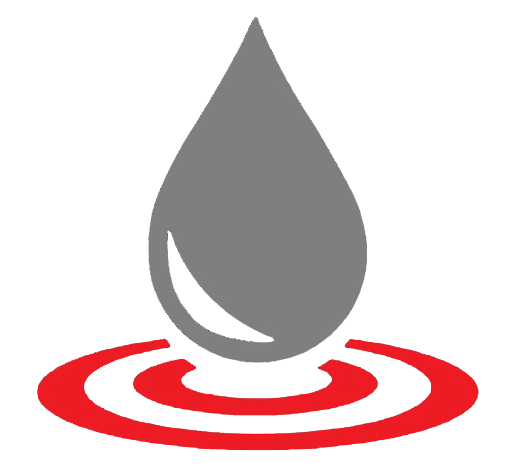




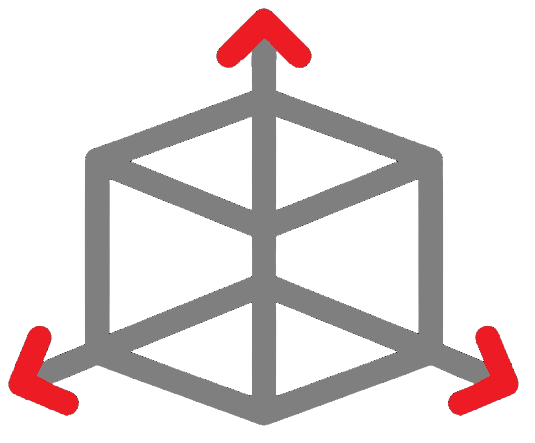

.png)
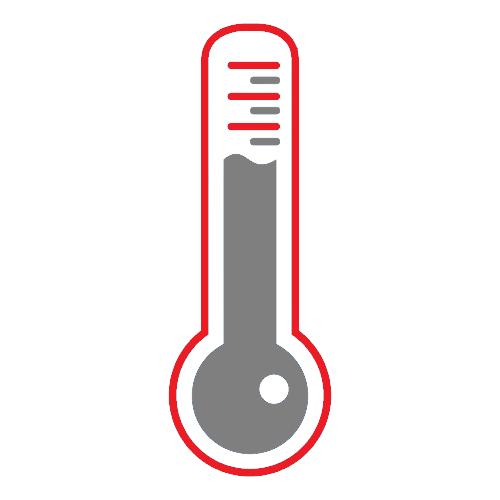
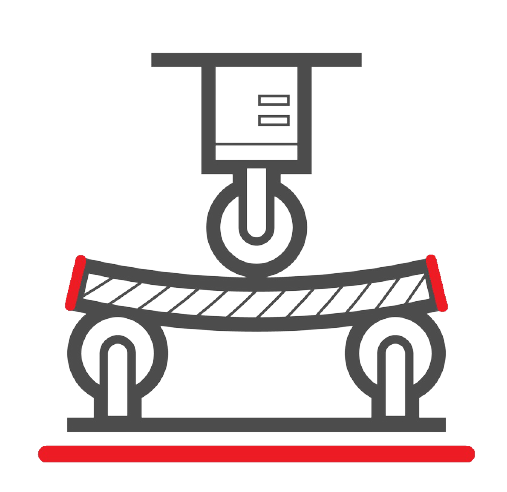
.png)

.jpg)
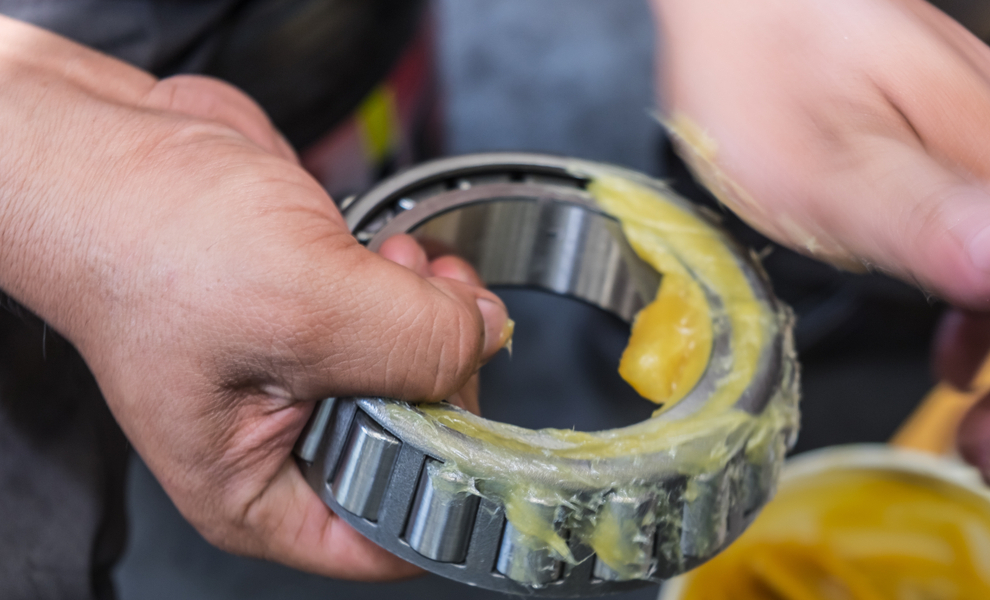
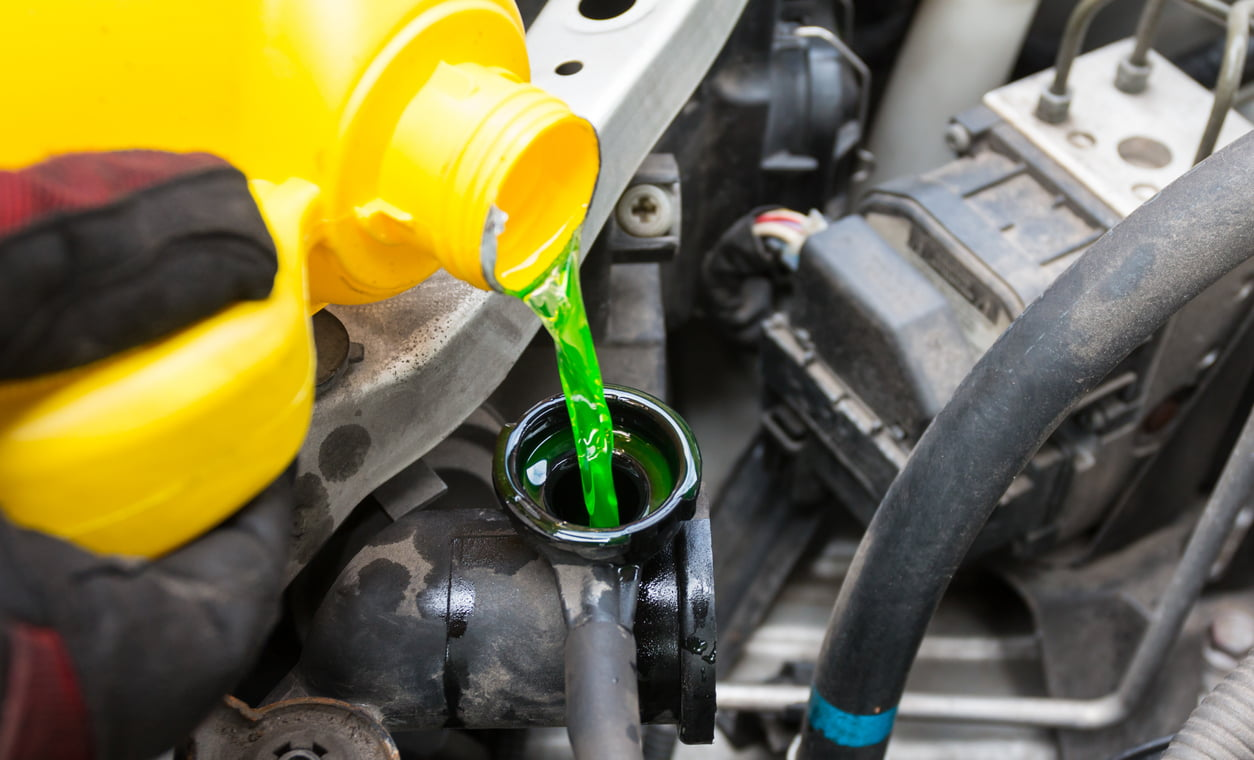
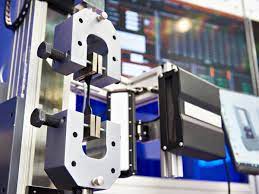

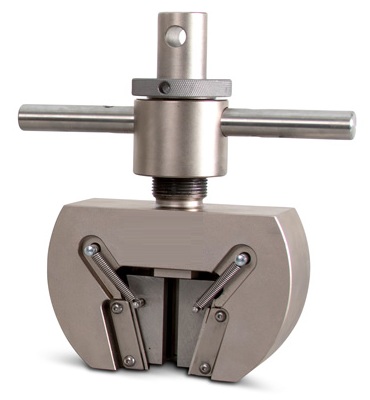
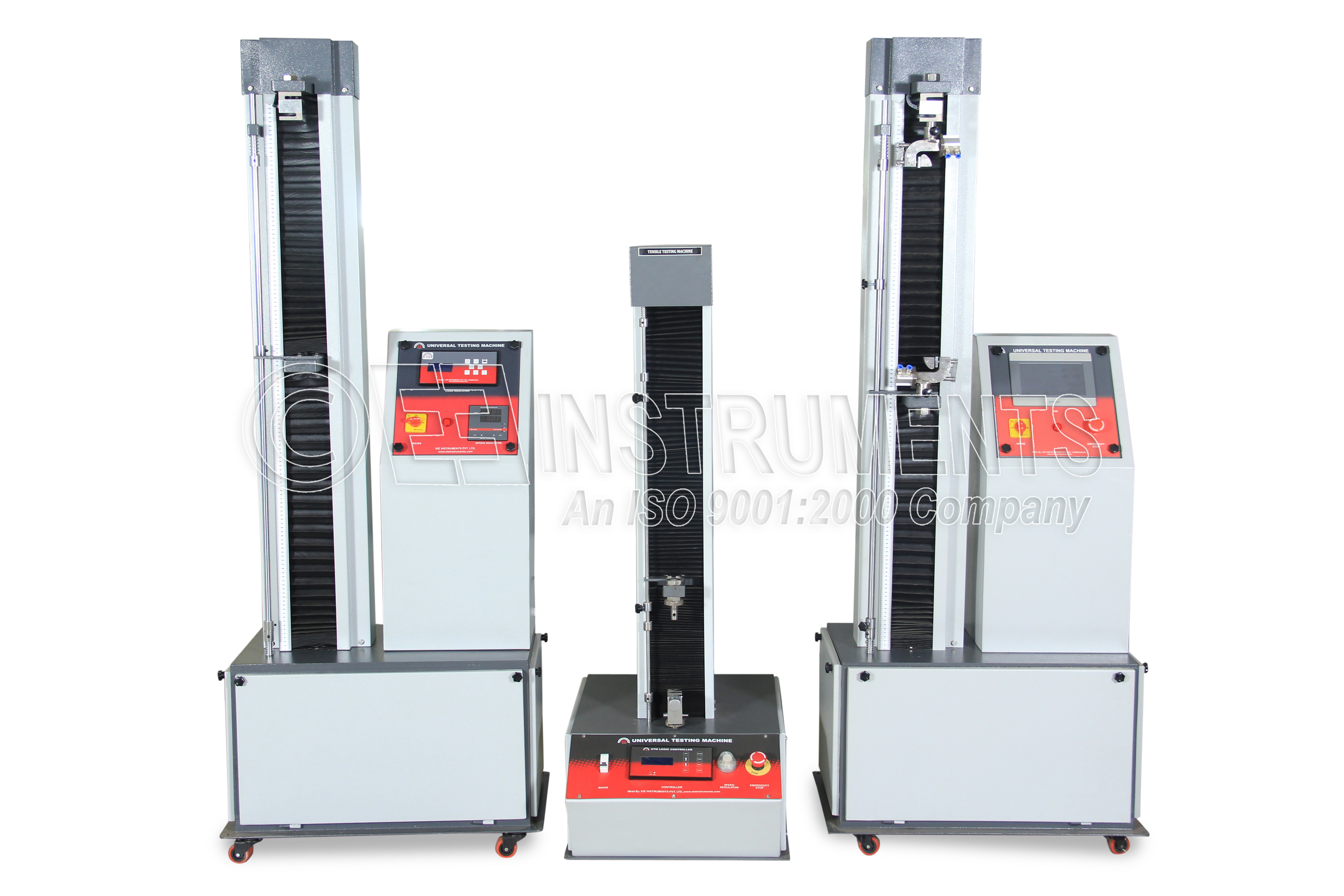
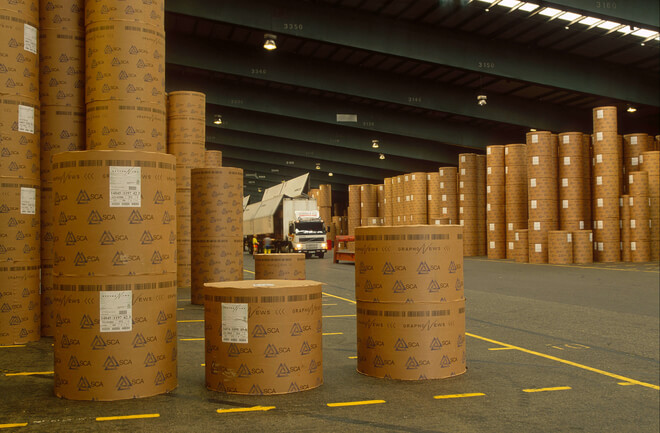
.png)
.png)
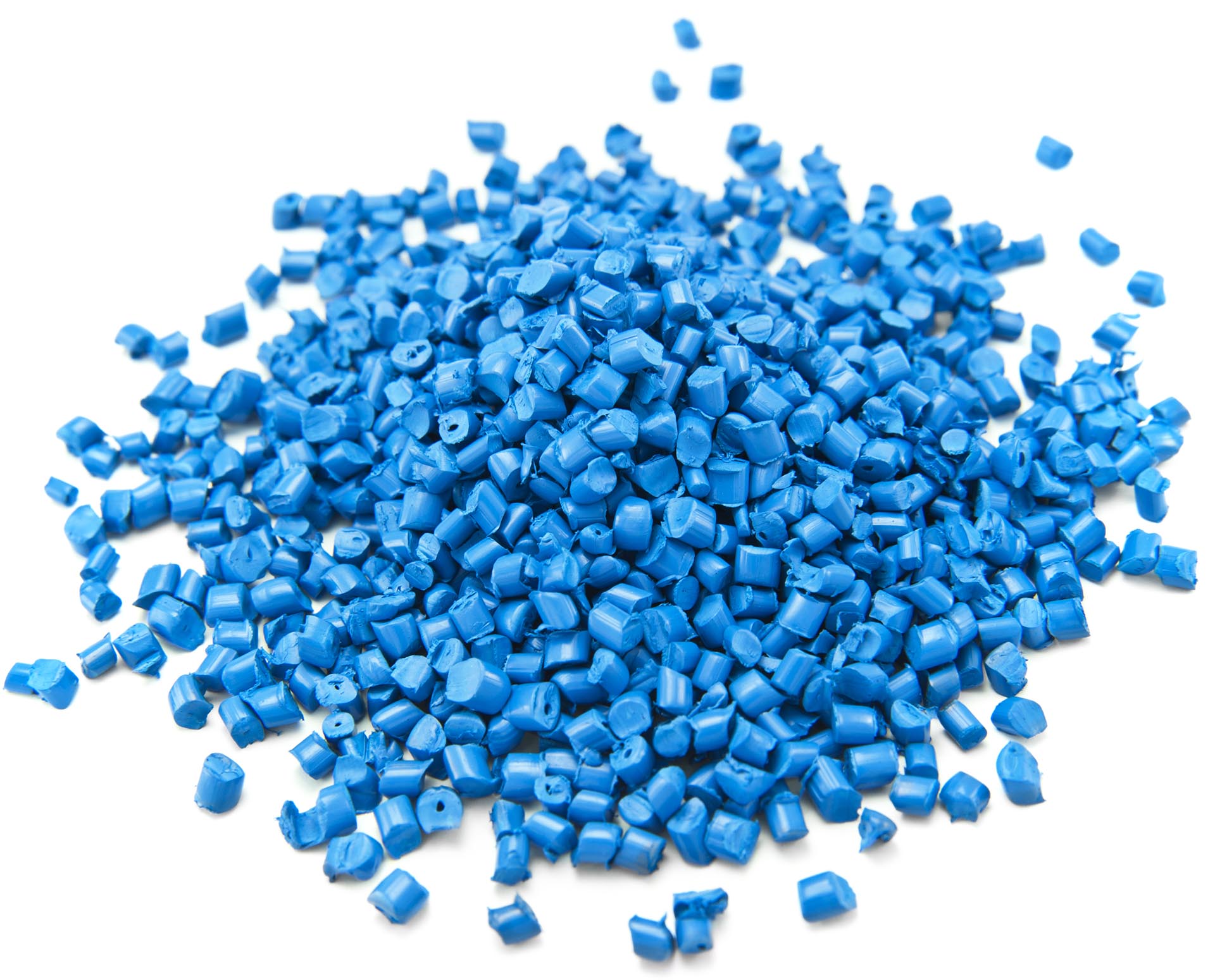
.png)
.png)


